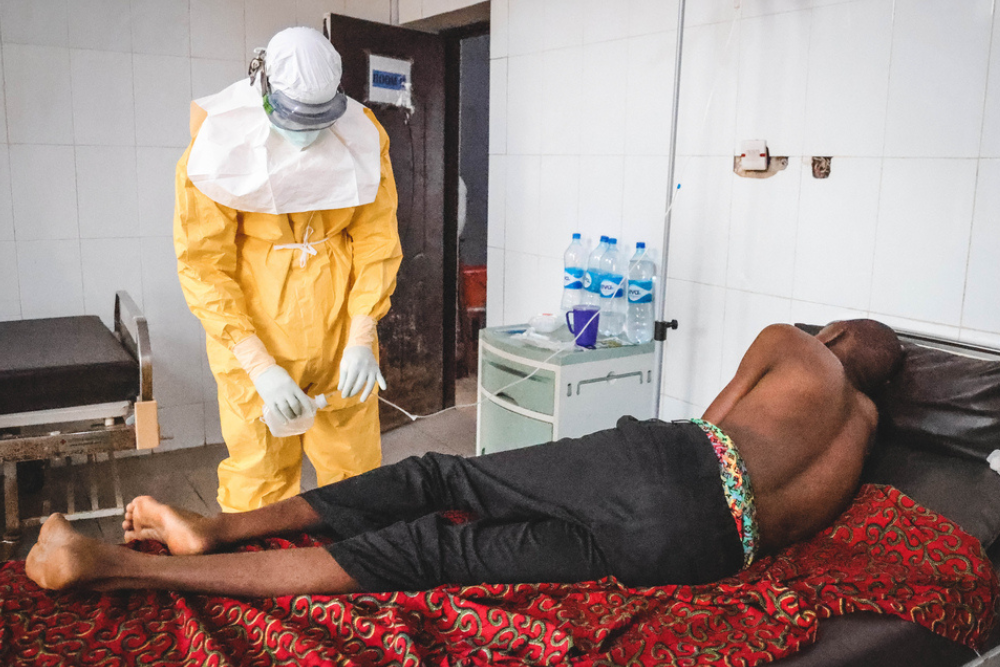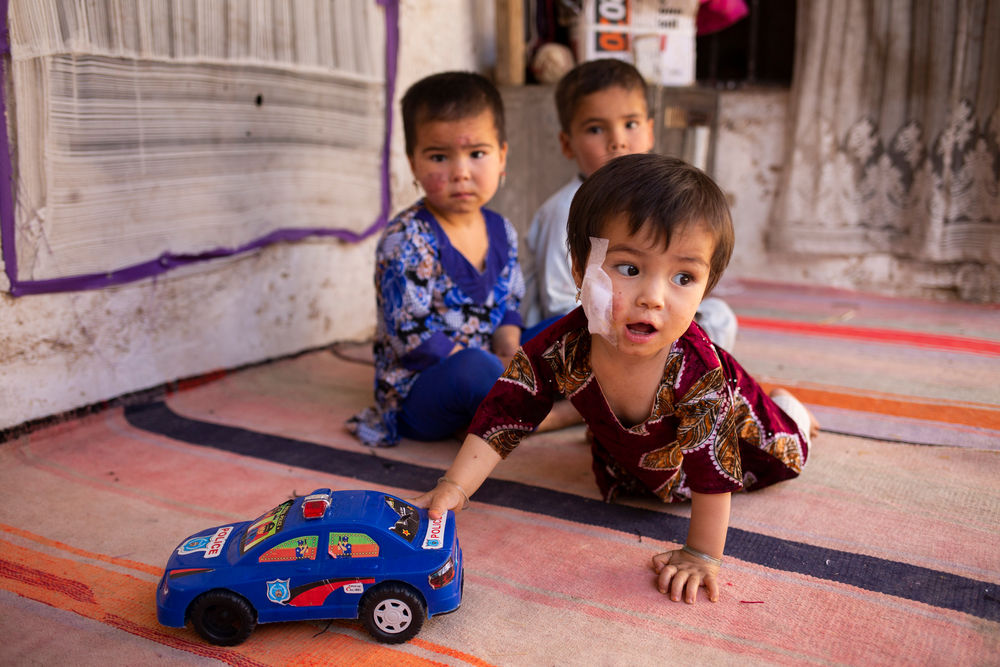“I was stooling, vomiting and couldn't keep my eyes open,” says Ngozi, a 28-year-old petty trader from Abakaliki.
After trying various treatments at home, Ngozi was taken to hospital in Abakaliki, in southeast Nigeria’s Ebonyi state, where she was diagnosed with Lassa fever. “After two days there, my health deteriorated and I even lost consciousness at some point,” she says.
Lassa fever is a haemorrhagic fever that causes serious damage to various organs, reducing the body’s ability to function. The virus is contagious and can spread via bodily fluids, including saliva, urine, blood, and vomit. The disease affects 100,000 to 300,000 people every year across Western Africa and causes around 5,000 deaths. Last year in Nigeria, there were 8,978 suspected cases and 1,227 confirmed cases of Lassa fever (Nigerian Centre for Disease Control and Prevention).
The city of Abakaliki has seen repeated outbreaks of the disease since 2018, when an Médecins Sans Frontières team arrived to help identify people with symptoms and care for patients in Alex-Ekueme Federal Teaching Hospital (AE-FUTHA). Around 600 km further north, a second MSF team has been helping care for patients with Lassa fever in Tafawa Balewa hospital, Bauchi state, since 2022. Last year, the two MSF teams cared for 618 patients with suspected or confirmed Lassa fever.
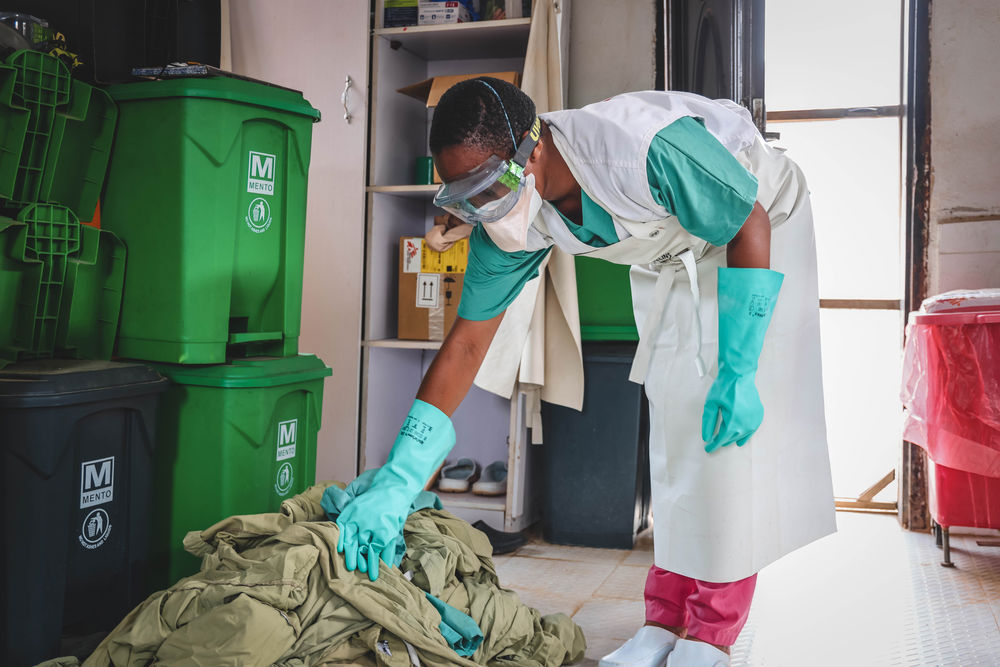 Lassa fever is a highly infectious disease and therefore, every aspect of its management is done with much infection prevention control measures. © MSF
Lassa fever is a highly infectious disease and therefore, every aspect of its management is done with much infection prevention control measures. © MSF
Spread by rats
Lassa fever is spread by a species of rat which is found mainly in three states in eastern and southern Nigeria: Edo, Ondo and Ebonyi.
“Transmission of Lassa fever occurs throughout the year, but large seasonal outbreaks occur during the dry season, from December to April, when rats leave the fields to find food from other sources, such as people’s houses,” says Ben Uzoma, MSF health promotion manager.
To help tackle the disease at source, MSF has launched a ‘vector control strategy’ in local communities in Abakaliki, which includes setting rat traps, using rodenticides and sharing health information messages on proper waste management, food preparation and storage.
Diagnostic difficulties
When a person is infected with the virus, they may experience symptoms including a fever, body aches, a stomach-ache and vomiting – symptoms very similar to those of malaria, which can make it difficult to identify cases of Lassa fever in a timely manner.
Oluchi, a 26-year-old mother of four, from Ebonyi state recalls when the symptoms started. “I started having a high fever and was vomiting,” she says. “My husband took me to a private hospital, where I was administered malaria medication, but the symptoms only worsened. The doctors could not figure out what was wrong with me, so they referred me to Alex-Ekueme hospital to test for Lassa fever.”
To help detect cases of Lassa fever early, MSF has developed a screening form in collaboration with Alex-Ekueme hospital, with which healthcare workers can spot suspected cases by recording and analysing patients’ general and major symptoms and matching it with their health history and contact with rodents or an infected person.
Patient care
As soon as a patient arrives at AE-FUTHA with suspected Lassa fever, they are admitted to the hospital’s isolation centre, built by MSF. Patients who test positive are immediately moved to the ‘virology unit’ for treatment. This barrier measure is put in place to separate Lassa fever patients from other patients and minimise the risk of infection for healthcare workers and patients’ relatives.
“After my test came out positive, I started receiving treatment,” says Ngozi. “Many doctors and nurses constantly checked on me throughout the day, and after seven days my test results came out negative.”
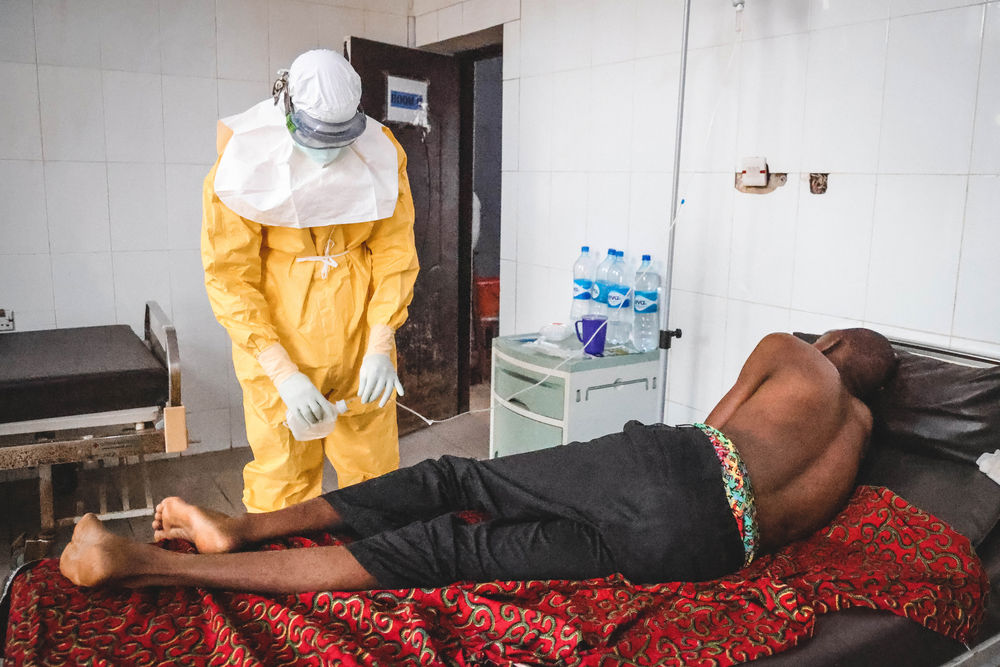 A Ministry of Health doctor administering intravenous injection to a Lassa fever patient admitted at the confirmed cases’ ward of the virology unit. © MSF
A Ministry of Health doctor administering intravenous injection to a Lassa fever patient admitted at the confirmed cases’ ward of the virology unit. © MSF
Emotional support
Contracting Lassa fever can take a toll on one's emotional and psychological wellbeing. MSF mental health teams provide counselling and psychosocial support to patients with suspected or confirmed Lassa fever throughout their hospital stay, through individual and group discussions, as well as playing games and doing puzzles.
Oluchi’s experience with Lassa was so harrowing that she thought she was going to die. “I got so scared at the thought of dying,” she says. “But one of the MSF mental health counsellors came often to comfort me.”
Before discharge, patients are provided with information on expected symptoms and potential mental health impacts, so they are prepared for life as a survivor of Lassa fever. Patients’ families also receive support from the mental health team to help them understand and deal with their relatives’ condition.
Challenges of tackling Lassa fever
Despite MSF’s efforts, challenges remain in tackling outbreaks of the disease in Nigeria. These include a lack of awareness among health workers, a shortage of training and research on Lassa fever, limited resources, and limited access to healthcare facilities. Alex-Ekueme Federal Teaching Hospital is the only treatment centre for Lassa fever in southeast Nigeria, while most hospitals across Western Africa are not fully equipped to handle complex cases.
Meanwhile, for many people with symptoms, usually start by consulting medicine sellers or traditional healers, with the result that patients often show up late at hospital with severe complications. By this stage, their chances of survival may be slim.
Survivors of Lassa fever also often face stigma from their communities due to a widespread lack of knowledge about the disease; some people mistakenly believe that survivors are contagious and that catching the disease is a sign of poor hygiene or a punishment from God.
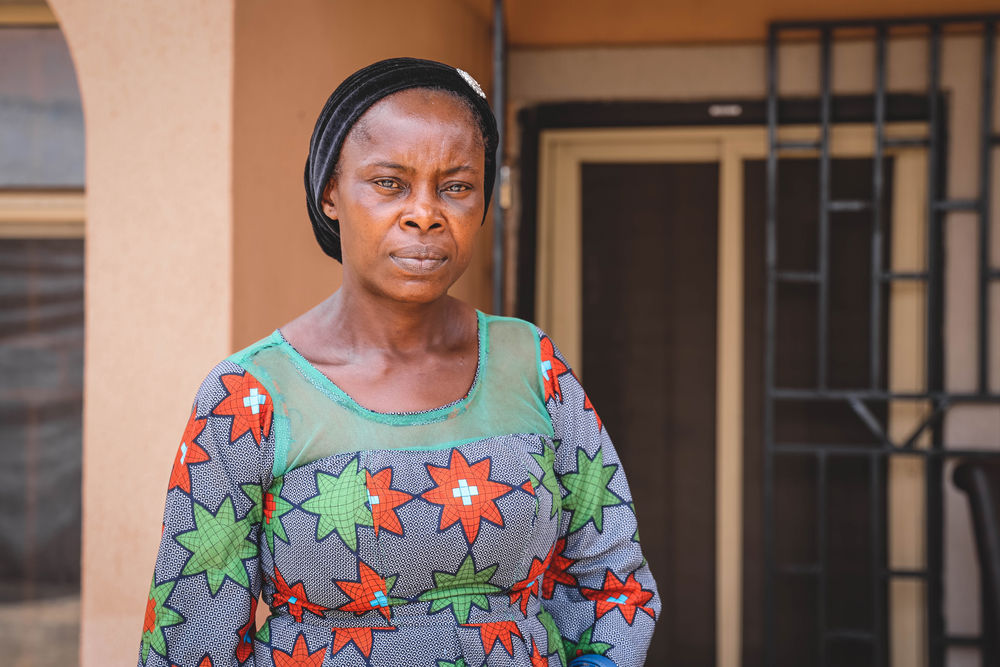 Patience Usulor is a 40-year-old Lassa fever survivor. © MSF
Patience Usulor is a 40-year-old Lassa fever survivor. © MSF
“When I returned home, I was excluded by my peers,” says Oluchi. “People were running away from me because of the contagious nature of the disease.”
After leaving hospital, survivors continue to receive support from MSF’s mental health staff, who do their best to ensure that they are reintegrated back into their communities.
Working with communities
MSF health promoters work with communities to counter misinformation and lack of knowledge about Lassa fever. “We let people know that those who have been treated and cured from Lassa fever are no longer contagious,” says Uzoma.
During the peak season of the disease, MSF’s health promotion teams organise health education and community engagement activities in hotspot areas. With the help of flyers, leaflets, flip charts, demonstrations and radio spots, the teams share information on Lassa fever and make sure that people know where they can receive free medical care.
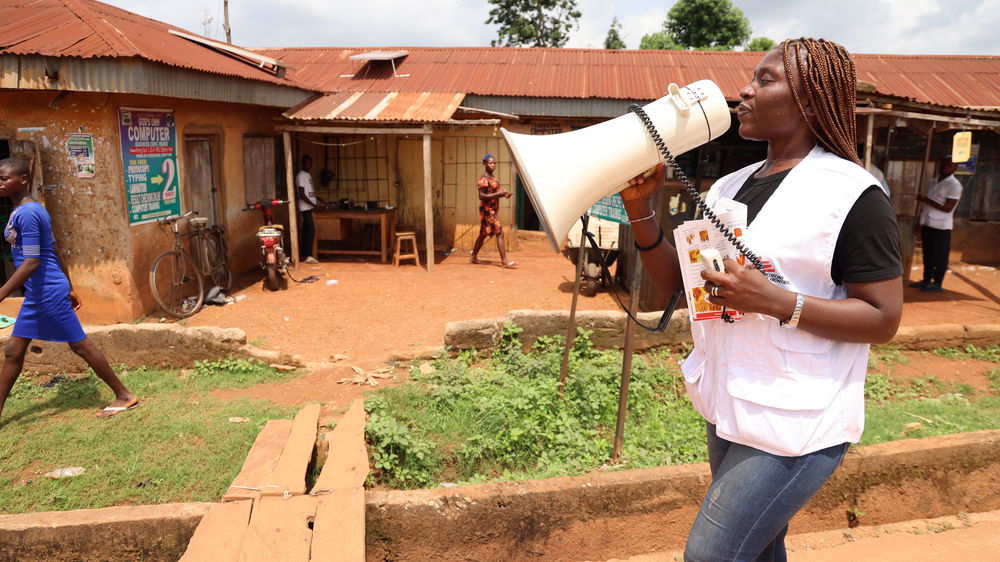 MSF health promotion officer, Chidinma Ugonna, educating the public about Lassa fever in Iboko market. © MSF
MSF health promotion officer, Chidinma Ugonna, educating the public about Lassa fever in Iboko market. © MSF
The work of MSF’s health promoters continues year-round. “We know that behavioural change does not happen instantly and that we must continuously talk about it before people start changing,” says Uzoma.
Patients’ names have been changed.


